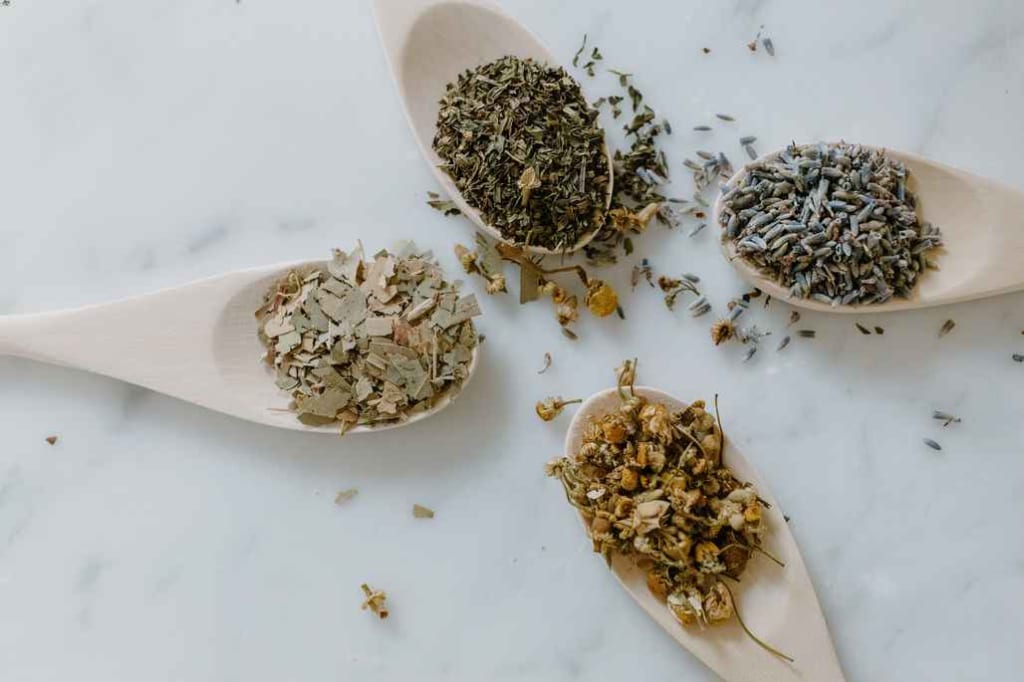10 Herbal Remedies You Didn't Know Were Backed by Science
Natural Remedies For You

Herbal remedies have been used for centuries as natural remedies for a variety of health issues. But did you know that many of these herbal remedies are backed by scientific evidence? In this blog post, we'll look at 10 herbal remedies that are not only natural, but also scientifically proven to work. From boosting immunity to reducing inflammation, these herbal remedies are worth considering if you're looking for a natural solution to your health problems.
1) Chamomile
Chamomile is a popular herb used in many herbal medicines. It has a long history of being used to treat a variety of ailments, including anxiety and insomnia. Research shows that chamomile may be effective in reducing symptoms of anxiety and depression. Chamomile can also be used to soothe an upset stomach or as a natural sleep aid. Additionally, chamomile has anti-inflammatory properties and can help reduce inflammation in the body. Finally, chamomile may also help reduce the symptoms of menstrual cramps and menopausal hot flashes.
2) Peppermint
Peppermint is a popular herbal medicine that has been used for centuries to treat various ailments. Its oil, which is extracted from the leaves and flowers of the peppermint plant, is known for its antispasmodic and cooling properties. It is also a popular ingredient in many natural health products, such as teas, syrups, tinctures, ointments, and more.
Peppermint can be used to relieve digestive issues, like gas and bloating, as well as nausea and indigestion. It can also help soothe irritable bowel syndrome symptoms and reduce inflammation. Additionally, its antispasmodic effects may help reduce cramps and muscle pain. Peppermint oil has also been shown to have antibacterial and antiviral properties that can help fight off infections.
In terms of respiratory health, peppermint is thought to be beneficial for bronchitis and sinus congestion. It can help clear nasal passages and soothe sore throats. Inhaling steam containing peppermint essential oil can also help reduce coughing and congestion.
Peppermint has also been studied for its ability to reduce stress and improve mental clarity. It can be taken in teas or tinctures to promote relaxation and calm the nerves. For this purpose, peppermint oil has also been used aromatically in diffusers or massage oils.
Overall, peppermint is a versatile herbal medicine with a variety of potential benefits. If you're looking for an all-natural solution to health issues, consider adding this herb to your list of options.
3) Lavender
Lavender is one of the most popular herbal medicines in the world. It has a calming scent, and can be used to treat a variety of ailments including anxiety, insomnia, depression, and skin irritations. The oil can be inhaled, diffused, or applied topically. Lavender has also been found to have anti-inflammatory, anti-fungal, and antiseptic properties. It is often used as an alternative to prescription medications for the relief of tension headaches and migraines. Lavender essential oil can also be used to reduce stress and anxiety, induce sleep, and improve mood. Studies have found that it can be effective in reducing pre-operative anxiety and post-operative pain. Additionally, lavender may help with digestive issues and can even be used as an insect repellent.
4) Rosemary
Rosemary is an incredibly versatile herbal medicine that has been used for centuries to help treat a variety of ailments. It has a calming and uplifting effect on the mind and body, making it a great choice for those looking for stress relief. Rosemary is also known for its anti-inflammatory and antiseptic properties, making it effective for treating skin ailments and infections. Additionally, rosemary can be used as an antispasmodic, helping to reduce muscle tension and cramps. Rosemary is often used as an essential oil or taken as a supplement to help improve digestion and boost the immune system. When taken regularly, herbal medicines like rosemary can provide numerous health benefits.
5) Echinacea
Echinacea is a popular herbal medicine that has been used for centuries to treat various illnesses, including colds and the flu. Research suggests that echinacea can reduce the severity of colds, as well as speed up recovery time. It is believed to boost the immune system and help the body fight off infections and viruses. Echinacea can be taken in many forms, including tinctures, capsules, teas, and topical creams. When taken regularly, it can provide long-term protection from common illnesses.
CLICK HERE TO KNOW MORE ABOUT HERBAL REMEDIES
6) Gingko Biloba
Gingko biloba is one of the oldest herbal medicines in the world and has been used in traditional Chinese medicine for centuries. It's most commonly used as a natural remedy for improving memory, enhancing cognitive function, and boosting energy levels. Studies have also suggested that gingko biloba may help to protect against age-related degenerative diseases like dementia and Alzheimer's. Additionally, research suggests that this herb may be beneficial for those with anxiety and depression. Gingko biloba is available in a variety of forms, such as capsules, tablets, teas, and tinctures. Make sure to consult your doctor before using any form of herbal medicine, including gingko biloba.
7) St. John's Wort
St. John's Wort, also known as hypericum perforatum, is one of the most popular herbal medicines used to treat mental health problems such as depression and anxiety. St. John's Wort has been studied extensively, with many studies showing that it can improve mood, reduce symptoms of mild to moderate depression, and reduce anxiety levels. St. John's Wort has been shown to be more effective than a placebo in treating mild to moderate depression, and research suggests that it may be as effective as some prescription antidepressant medications. It may also help with the symptoms of seasonal affective disorder (SAD). However, it is important to note that St. John's Wort may interact with other medications and should not be taken without consulting a doctor.
8) Ginseng
Ginseng is one of the most popular and widely used herbal medicines in the world. It has been used for centuries to treat a variety of ailments, including fatigue, poor concentration, stress, anxiety, and depression. The herb is believed to have powerful antioxidant properties and to help balance the body’s hormones, as well as providing a boost in energy levels. Ginseng is available in various forms, such as capsules, powder, and tea. Many studies have shown that ginseng can be effective in reducing symptoms of stress and fatigue and improving cognitive performance. However, more research is needed to confirm these effects. If you are looking for an herbal remedy with potential health benefits, ginseng may be worth considering.
9) Garlic
Garlic is one of the most popular and widely used herbal medicines, with research proving its medicinal benefits. It has been used as a natural remedy for centuries and is known for its antibiotic properties. Garlic contains allicin, which has powerful anti-inflammatory effects, as well as a number of other bioactive compounds like flavonoids and vitamins C and B6. Studies have found that garlic can help reduce high cholesterol levels, blood pressure, and even aid in weight loss. It also has antimicrobial and antifungal effects and can help fight against common bacterial infections like E. coli and salmonella. Garlic is a great source of sulfur, which is beneficial for the digestive system and helps to boost the immune system. As an herbal medicine, garlic can be taken as a supplement, or it can be added to foods and drinks.
10) Turmeric
Turmeric is one of the most popular herbal medicines used around the world. It is a bright yellow-orange spice derived from a plant in the ginger family. Turmeric has been used for centuries to help relieve pain, reduce inflammation, and promote healing. Studies have shown that it can also be beneficial in treating digestive issues, improving skin health, and even preventing cancer.
Turmeric contains curcumin, a compound that has powerful anti-inflammatory properties. It helps to reduce swelling and irritation in the body, and can help to improve joint pain and stiffness. It may also help to reduce the risk of heart disease by reducing bad cholesterol levels in the body. Additionally, turmeric has been studied for its potential to protect against cancer. It has been found to have anti-cancer properties, helping to slow the growth of cancer cells.
Turmeric is usually taken in capsule form or as a powder that can be added to food or drinks. Many people choose to make their own turmeric tea by boiling freshly-ground turmeric root in water. When taken regularly, turmeric can provide numerous benefits to your overall health.
Interested to know more about herbal and natural remedies? Click Here






Comments
There are no comments for this story
Be the first to respond and start the conversation.